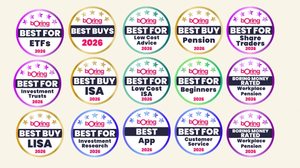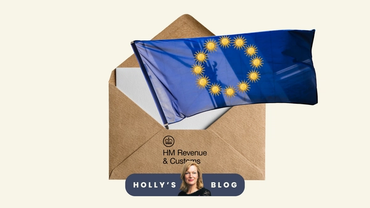Now That's What I Call Money
By Holly Mackay, Founder & CEO
3 Nov, 2023

Another small sigh of relief for mortgage holders this week as the Bank of England held rates steady at 5.25% for the second time, giving hope to the possibility that this is the top of the tightening cycle.
Out of 9 people on the Monetary Policy Committee, 6 said “Stick”; and 3 voted to hike. Showing that the majority think – for now – that they’ve poured enough water on a heating economy to tame it.
Higher borrowing costs however are not just going to go away, like a one hit wonder. This is no "Come On Eileen" moment. Yesterday, enormous asset manager BlackRock forecast borrowing costs remaining high for the next 5 years, citing ageing populations, difficult geopolitical relations and costs associated with energy transitions. This is going to be a long haul.
Heaven Knows I’m Miserable Now
Back home, and despite borrowers’ muted high fives yesterday, the Governor of the Bank of England had a face like Morrissey. The reason they are not shoving rates higher is because the outlook is pretty bleak – the economy is forecast to barely grow and then stay flat in 2024. The jobs market is a bit weaker, wage growth is stumbling, consumer spending is flat and lending to businesses will fall.
Our House
For those whose cheaper fix is coming to an end, the average 2-year fix is about 6.3% and the average 5-year fix is about 5.9%. Not great, but less awful. Rates are expected to fall next year but the consensus is it will be gradual and not dramatic.
And investors are hungry (like the wolf) for income
One impact of high inflation is that it erodes our savings. So investors tend to look for more income from their savings.
Investment platform Interactive Investor has confirmed movement at the top of its best-selling lists in October. Scottish Mortgage had been top of their investment trust pops since 2019, while Fundsmith Equity had been number one on their fund charts every month since March 2021. They have been the financial equivalent of Bryan Adams’ "Everything I Do, I Do It For You".
However, last month they were both knocked into second place by City of London and Royal London Short Term Money Market respectively, playing the role of U2’s "The Fly" and displacing the song we thought we couldn’t hear again without snarling at someone. (Is that just me?) Both these are income focused.
City of London’s ‘dividend yield’ is currently about 5.22%. What does this actually mean? Put simply, if you had £10,000 invested here, it would pay you out about £522 as income every year. So you get to invest in the stock market, but also get cash payouts throughout the year. The trust holds shares like Shell, Unilever and Tesco. These are big old established companies which make cash – so they either reinvest this or share some of the spoils with shareholders by paying out lump sums called ‘dividends’ during the year.
Every £100 invested in Shell would get you about £3.40 paid out a year, Unilever £3.90 and Tesco £4. So something like City of London (which has 85 shares in its total pooled collection) is able to collect all these dividends and pass them on to its investors as a single payment.
This week’s featured article from Schroders tackles the question many investors are asking themselves – are today’s high interest rates too good for investors to ignore? How do we navigate the choice between cash and investments?
But don’t forget TAX
One thing to keep in mind at the moment is TAX. Look, I shouted it for emphasis. TAX! Pink Floyd should have sung about this instead of "Money". With interest rates so high, lots of us are looking to cash accounts. Just remember though that the personal savings allowance has been frozen since 2016 – with an allowance of £1,000 for base rate taxpayers, £500 for higher rate taxpayers and £0 for additional rate taxpayers. This can be summarised as mingy. And any interest we make above these amounts is taxed.
So remember your lovely tax-quarantined ISA. Check out ‘high yielding’ investments as an income-generating alternative. If you fancy doing a bit more reading on good dividend payers, the Association of Investment Companies has a list of ("I’m Holding Out For A-") Dividend Heroes.
Have a great weekend everyone, with gunpowder, treason and plot. There will be a song about that – but I’ve gone blank so no going out with a bang this week!
Holly

Want to get Holly's weekly blog straight to your inbox?
Already have an account? Login






